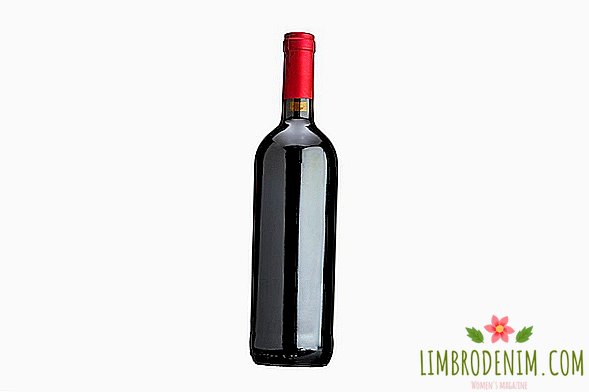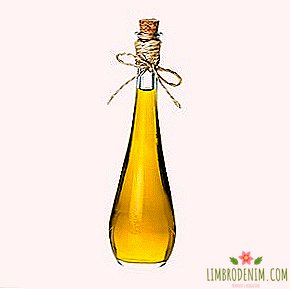What to eat to live longer: Everything about the Mediterranean diet
Our ideas about healthy eating formed relatively recently: in the 1950s, the American physiologist Ansel Case decided to conduct the first of its kind research on the dependence of health on lifestyle. First of all, he was interested in the causes of cardiovascular diseases, the frequency of which was rapidly increasing in the United States, although the standard of living and health care there was relatively higher than in post-war Europe. In those days, they were not even sure about the harm of cigarettes, and researchers tried to find an explanation for the fact that healthy people fall on the street and die "just like that."

Who is the most healthy
Case study was conducted in seven countries and tested the hypothesis that cardiovascular mortality and morbidity depend primarily on diet and lifestyle. Seven countries in four parts of the world with radically different diets were chosen: the USA, Finland, Greece, Italy, Yugoslavia (Serbia and Croatia) and Japan. The results of this study strongly influenced the understanding of the importance of the diet and its effects: it was found that in the regions located in the Mediterranean basin, life expectancy is higher and mortality from cardiovascular diseases is lower. At the same time, the level of development of the health care system, and the standard of living in general, were in these countries much lower than in the USA.
That is how the term "Mediterranean diet" appeared - a diet typical of the inhabitants of some Mediterranean countries in the 1960s. Researchers from around the world became interested in the results, and in 1961, Case, thanks to his scientific works, appeared on the cover of Time magazine.
You are what you eat
The Mediterranean diet consists mainly of herbal products - not excluding milk, meat and fish. It is not based on recommendations for the daily amount of fats, proteins and carbohydrates and not on the caloric intake of the diet, but on the frequency of use of certain groups of foods for different time intervals. Now, the Mediterranean Diet Score Tool, a fourteen-point questionnaire, is used to determine whether the Mediterranean diet is in line with the rest of the world, where one point is awarded for each positive answer. The higher the result, the more the diet corresponds to the Mediterranean - and the higher the correlation with such positive health effects as weight loss and the risk of chronic diseases. Recommendations for each group of products are divided into daily, weekly and monthly consumption.
Herbal products are necessary daily: at least two servings of vegetables (about 400 grams) and three servings of fruits (about 240 grams). In addition, it is recommended to eat three servings (about 450 grams) of leguminous crops and one serving (about 30 grams) of nuts a week. This diversity provides the body and fiber, and vitamins and minerals. It is proven that fiber reduces the risk of heart disease and malignant tumors.
Olive oil is the main source of lipids and generally the main kitchen fat of the Mediterranean diet. About its beneficial properties for the heart has been known for more than a decade. A meta-analysis of cohort studies has shown that increased consumption of olive oil reduces both the overall mortality rate and mortality rate specifically from cardiovascular diseases, as well as the risk of stroke. Another Mediterranean diet includes at least three servings of fish and seafood per week. Fatty fish varieties are a source of omega-3 fatty acids, essential for maintaining the life cycle of heart cells. Seafood is also a source of iodine, and it is part of the hormones necessary for growth, differentiation and tissue regeneration.

What about wine, meat and soda?
In Italy, Greece and Spain, it is customary to drink a glass of wine while eating. As you know, excessive drinking is harmful to health, and there is no evidence that increasing the amount of alcohol in the diet can be beneficial. Those planning to follow the Mediterranean diet are not recommended to increase their intake of wine - but it would be good to replace other alcoholic beverages with wine. A moderate consumption of dry wine correlates with a slight decrease in the risk of coronary heart disease, but an excessive amount (more than five glasses a day), on the contrary, significantly increases the risks.
Meat and animal products are not excluded - it is a source of protein, amino acids, vitamins of group B and some minerals. White meat, such as chicken, is preferred, and red meat and meat products are rarely consumed, just a few times a month. Recall that in 2015, WHO classified red meat as “most likely contributing to the development of cancer”, and meat products as “causing malignant tumors”. When choosing meat it is better to choose varieties with less fat. Eggs in the framework of the Mediterranean diet are recommended to eat two to three times a week, and dairy products to choose low-fat - this will allow you to eat a balanced diet and not get too much saturated fat.
The traditional Mediterranean diet, as you might guess, consists of home-made products, with minimal processing. It is assumed that the finished products, sugary drinks, industrial confectionery products are excluded - or at least are used no more than several times a month. Typically, the nutritional value of such products is low, but they have a lot of saturated fats, sugar and salt.
Diet is not everything
The difference between the lifestyle on the shores of the Mediterranean and in countries such as the United States and Finland in the sixties was not only in the diet. Residents of Greece, Spain and Italy were more active and smoked less, and these are two of the most important factors for predicting mortality and cardiovascular health. A sedentary lifestyle is inextricably linked to health risks, and moderate physical activity reduces both the risks to the cardiovascular system and the likelihood of diabetes. The Mediterranean diet was recognized to be balanced - it provides the body with all the nutrients and prevents many diseases, but physical activity should not be forgotten.

How to follow the Mediterranean diet
There are many visual "instructions" for following a Mediterranean diet. The main thing is the Mediterranean Diet Score Tool - this is a questionnaire containing a list of statements by which you can check how your diet corresponds to what you want. You can use the "pyramid" of food like this. General recommendations are listed below:
 Products of plant origin.Use olive oil as the main cooking fat. Each "big" meal should, if possible, include vegetables, fruits, grains. Beans are recommended a couple of times a week, and at least once a week you should eat a handful of nuts.
Products of plant origin.Use olive oil as the main cooking fat. Each "big" meal should, if possible, include vegetables, fruits, grains. Beans are recommended a couple of times a week, and at least once a week you should eat a handful of nuts.
 Animal products. A minimum of two servings of fish and two portions of white meat are needed weekly. Try to choose low-fat dairy products - and avoid sweet yoghurts and dairy drinks, which can give out as a "more useful" alternative. Eating eggs is not prohibited, but it should not be excessive (no more than four eggs per week).
Animal products. A minimum of two servings of fish and two portions of white meat are needed weekly. Try to choose low-fat dairy products - and avoid sweet yoghurts and dairy drinks, which can give out as a "more useful" alternative. Eating eggs is not prohibited, but it should not be excessive (no more than four eggs per week).
 Avoid finished products "from the store", commercial sweets and pastries, sugary drinks. Several times a month, you can afford these products - but the main thing is that they do not become a permanent part of the diet.
Avoid finished products "from the store", commercial sweets and pastries, sugary drinks. Several times a month, you can afford these products - but the main thing is that they do not become a permanent part of the diet.
 Alcohol can be used in combination with food, preferring wine. But do not artificially increase the amount of alcohol drunk.
Alcohol can be used in combination with food, preferring wine. But do not artificially increase the amount of alcohol drunk.
 In addition to diet It is important to keep active and not to smoke.
In addition to diet It is important to keep active and not to smoke.
Photo: Angel Simon - stock.adobe.com, Gino Santa Maria - stock.adobe.com, akf - stock.adobe.com





